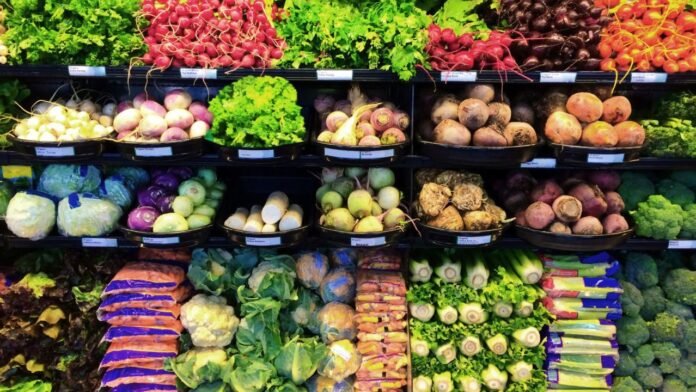The prices of vegetables are increasing.
In Lahore, inflation is still not under control and has affected many essential commodities, especially vegetables. These increasing costs of daily goods such as onions and tomatoes have become a big worry for people.
A market committee reported an increase of two rupees in the price of onions per kilogram. According to the government rate, onions should be sold at 95 Rs per kg, but buyers pay 130 Rs per kg from the market. Similarly, the official rate for tomatoes is 135 Rs/kg; however, tomatoes are sold for around 160 Rs/kg in markets. There are huge differences between official rates and market values, which shows the intensity of inflationary pressure.
Inflation everywhere
The price hike trend has targeted other than onions and tomatoes; potatoes, used widely across Pakistan, have also faced a sharp rise in their prices. According to the government price list, potatoes should be available at 82 Rs/kg, whereas they are sold at up to 100 Rs/kg in marketplaces. Garlic, another commonly used ingredient, has seen an increase of ten rupees, making its official rate 395Rs/kg, while garlic can easily be found for about 550Rs+/kg in local markets.
Ginger, being an essential spice, had an official rate set up to be purchased at 640 Rs/kg; however, the same quality ginger could easily be bought from any nearby grocery store or vendor against just eight hundred Pakistani Rupees per kilogram instead of following this fixed government price policy. Similarly, lemons were officially increased by fifteen rupees, i.e., 390Rs/kg, but one can buy them from any shopkeeper at around five hundred rupees per kilogram.
Consumer’s Decision Making Affected
Prices have increased not only for vegetables but also for other food items. According to a report, cauliflower now costs 150 rupees (150)per kg. In contrast, cabbages cost 250 rupees (250)per kilogram, thus putting extra pressure on people’s already tight budgets, especially those living below the poverty line, who are forced to alter their eating habits due to the lack of affordability caused by these exorbitant rates imposed upon such necessary commodities needed daily for human survival.
Broiler Chicken and egg prices also increased.
This inflationary wave has not spared the poultry products; broiler chicken is now being sold at 589 Rs/kg after an increase of five rupees (5)per kg. Eggs, which previously cost two hundred fifty rupees per dozen(260), now cost more than double that amount. Three hundred ninety rupees per dozen, thus further increasing the burden on households, particularly those with children. This type of nutritional item forms one major part of many others required to ensure healthy growth. There are no alternatives available for locally produced sources except imported ones. Whose price becomes too high compared to the domestic supply level.
Economic and Social Implications
Rising prices are economic and social because they affect consumer purchasing power, especially for low-income people. Such families struggle to meet their basic needs when essential items keep increasing in value. Which may lead to malnutrition when they opt for cheap, less nutritious substitutes. Hence, they fall sick more frequently and gently, needing medical attention, often causing more significant financial strain.
Government Response and Market Dynamics
The government should control prices while ensuring they are implemented officially in the market. This can be considered an inefficient supply chain, where intermediaries take advantage, such as hoarding and profiteering. Which results in the difference between official rates and those of the market. Monitoring markets strictly and promoting effectiveness in distribution channels may also alleviate some problems associated with this condition. Equally important is subsidizing necessary goods or providing direct monetary aid for needy households.…


